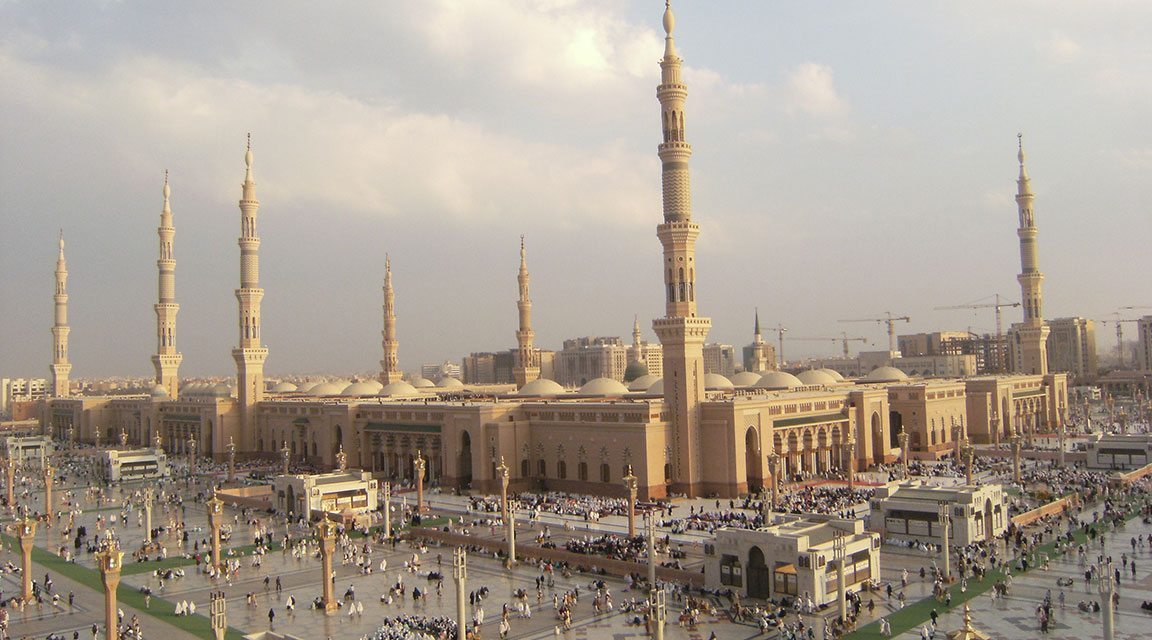

Ministry of Finance directs Saudi Binladin Group to stop work after finishing some of the ongoing tasks
Saudi Arabias Ministry of Finance has instructed the kingdoms biggest contractor Saudi Binladin Group (SBG) to stop work on expansion of the Prophets Mosque in Medina, Islams second-most holy site. The move comes as the kingdom cuts down spending on multi-billion dollar projects amid falling revenues on the back of sliding oil prices.
The ministry, in a letter sent to the SBGs general manager on 29 December, just a day after the kingdom announced a budget with sweeping economic reforms, has asked the contractor to finish some of the ongoing work on the site and stop execution of the project thereafter until further notice, without giving reasons for the move.
The letter, seen by MEED, was also sent to project consultant Dar al-Handasah.
SBG has been asked to finish work on dewatering and drainage for rain water, work related to waterproofing, supporting walls, permanent columns and protection systems for digging, maintenance for electrical systems, wood and machinery and securing project area and lightning it.
The contractor was also asked to stop any building work beyond the current north yard of the project.
The Ministry of Finance did not respond to an emailed request for comment and officials at the states Properties Department within the ministry couldnt be reached via phone. An official at SBG declined to comment. Dar al-Handasah also didnt respond to an emailed request for comment.
The General Presidency for Grand Mosque and Prophet Mosque Affairs had appointed SBG as main contractor on estimated $1.5bn makeover of the mosque in June 2012 with a completion date target of June 2016.
Scope of the work included expanding haram to accommodate up to 2.6 million worshippers, expansion of eastern yard of the mosque to add 37,000 square metres allowing additional 70,000 worshippers and associated facilities including a car park unit.
Revenue slump
Saudi Arabia, the biggest economy in the Middle East, has been grappling with shrinking revenues as Brent crude prices fell from over $100 a barrel in 2014 down to 11-year lows of close to $30 a barrel in recent weeks. Opec, the dominant oil cartel in the world, is battling with US shale producers for its share of the global crude trade. The kingdom, which is leading the price war, along with other GCC states account for about a third of the worlds proven oil reserves and rely heavily on the sale of hydrocarbons to support its economy.
Riyadh now expects a SR326bn ($87bn) budget deficit in 2016 with revenues projected to reach SR513bn, almost 16 per cent lower than SR608bn for 2015, according to the state budget press release published by the Finance Ministry on 28 December. With no signs of a price reversal for oil in the near future, the kingdom is doing everything it can to adjust to the new economic realities and the budget has even made the unpopular choice of cutting down on subsidies along with revised spending plans as part of the economic reforms.
On top of the reform agenda is the capital spending, including a review of government projects, their scope and priorities. The government has earmarked less than half of what it had allocated for the infrastructure and transportation sector last year, slashing it from SR63bn in 2015 to SR23.9bn in 2016, which could mean delays in some of the kingdoms largest upcoming and ongoing projects.
You might also like...

Contractors win Oman Etihad Rail packages
23 April 2024

Saudi market returns to growth
23 April 2024

Middle East contract awards: March 2024
23 April 2024

Swiss developer appoints Helvetia residences contractor
23 April 2024
A MEED Subscription...
Subscribe or upgrade your current MEED.com package to support your strategic planning with the MENA region’s best source of business information. Proceed to our online shop below to find out more about the features in each package.






